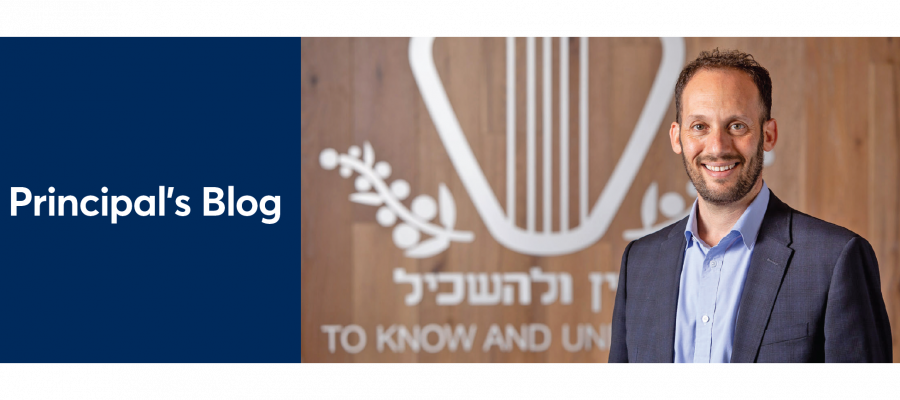
Facing antisemitism
The recent school holiday period was a challenging time for the Melbourne Jewish community. The arson attack on the East Melbourne shule and the violent protest on diners at Miznon restaurant in the CBD were reflective of an increasing spate of antisemitic incidents and rhetoric which have left many in our community feeling concerned and intimidated.
Over this period I experienced a “pinch myself” moment, when I watched the press conference of Prime Minister Anthony Albanese launching Special Envoy to Combat Antisemitism, Jillian Segal AO’s report.
Given the comparatively miniscule size of Australia’s Jewish population, only making up approximately 0.46%, I find it extraordinary that the situation for our community has deteriorated to the point that the Prime Minister was required to address our safety in a live-streamed press conference.
The report is a sobering read. It highlights a 316% increase in reports of antisemitic acts over the period from October 2023 through September 2024. Further it noted a 700% increase in reported acts in the two month period following the Hamas atrocities of October 7 2023. The report identifies a generational divide where those under the age of 35 are identified as more likely to harbour negativity towards Jewish Australians and to the existence of the State of Israel than those over 35.
It reflects the lived experience of many of us, and particularly designates tertiary institutions and cultural spaces as epicentres of antisemitic hostility. In relation to Israel, the report aims to distinguish “potentially legitimate critique from hate, especially when anti-Zionism masks antisemitism.”
The report provides a series of recommendations to the government which aim to address many of the key issues faced by the community. It will be fascinating to see how the government responds to an issue that it has deemed urgent.
Jillian Segal frames the issue as a universalist one. In the report she states that: “Antisemitism is not just a threat to Jews; it attacks the foundation of our nation; the fairness, equality and respect we have for one another. It is contrary to all the Australian values we hold dear. When hatred goes unchallenged our democracy is at risk. The response must be clear and unequivocal. There is no place for antisemitism in modern Australia.”
The insidious challenge that the unprecedented increase in antisemitism presents is multifaceted. Beyond the threats to physical safety and security is the emotional strain of feeling misunderstood and under siege. This creates a very real risk of eroding a sense of pride and positivity in our Jewish identity.
For this reason, the response to the surge in antisemitism is neither to ignore it, normalise it, nor exclusively focus on it.
Rather, we need to be wise to the threat that we face and to coopt the help of the broader community in addressing it. We must keep pinching ourselves and reminding ourselves that it is outrageous that a special envoy and prime ministerial press conferences are required.
Finally, we must double-down on imparting the joy and beauty of Jewish culture, history, thought, art, custom and religious practice. Our children should grow up feeling that their Jewish identity and their connection to Israel is something treasured and worthy of celebrating.
As Jillian Segal writes: “We must move forward with determination to confront hate and with the confidence that, by standing together, Australia will remain a country where all Australians, including Jewish Australians, can live with dignity, fairness, safety and mutual respect.”
Shabbat Shalom,
Marc Light
